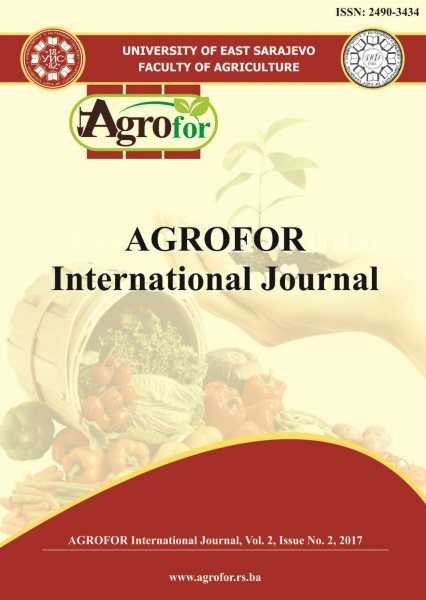SIMULTANEOUS SELECTION OF MOST STABLE AND HIGH YIELDING GENOTYPES IN BREEDING PROGRAMS BY NONPARAMETRIC METHODS
DOI:
https://doi.org/10.7251/AGRENG1702099SAbstract
Explaining genotype by environment (GE) interaction is important in breeding
programs because environmental effects are very often greater than genotypic
effects in multi-environment trials. Statistical methods that select for high yield and
stability have been proposed, but have not been compared for their usefulness
especially for nonparametric methods. We compared fourteen nonparametric
methods used for analyzing GE interaction at a set of experimental lentil data (11
genotypes at 20 environments). Nonparametric methods consist of six Huehn’s
statistics (S1, S2, S3, S4, S5 and S6), four Thennarasu’s statistics (NP1, NP2, NP3
and NP4), tow Sabaghnia’s statistics (NS1 and NS2), Kang’s RS and
nonparametric method of Fox et al. (1990). Considering mean yield versus
nonparametric stability values via their plotting in a plot, indicated four different
sections as A, B, C and D. The genotype fall in the section D were the most
favorable genotypes due to high mean yield as well as high stability performance.
Plot of the most nonparametric methods showed that genotypes G1 (1.21 t ha-1), G2
(1.34 t ha-1) and G5 (1.38 t ha-1) were the most favorable genotypes and so these
genotypes considered both yield and stability simultaneously. Although, most of
the nonparametric methods have static (biological) concept of stability and measure
the real concept of stability but plotting them versus mean yield and selecting the
genotypes of section D, could identify relatively the high mean yield genotypes as
the most stable ones.

